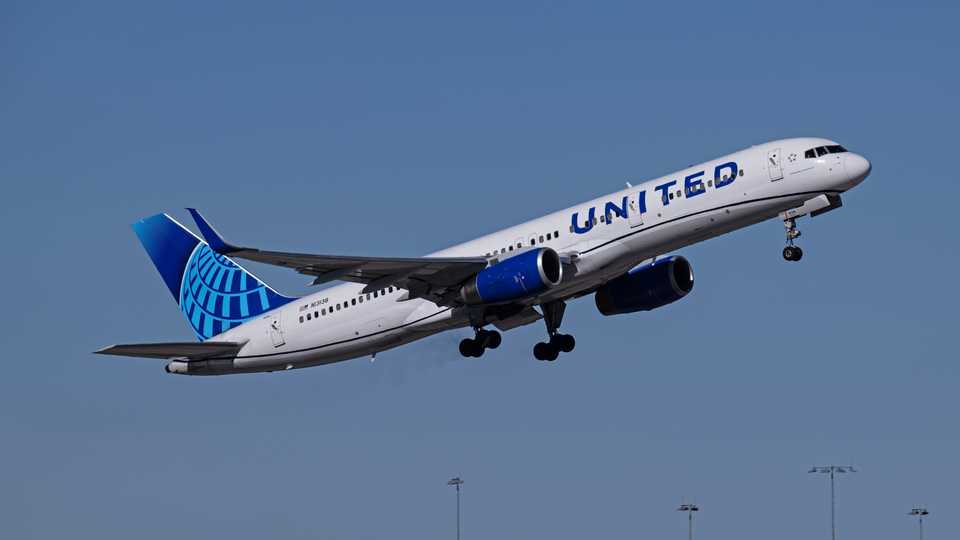Appeals Court Sides With Airlines On New USDOT “Junk Fee” Rule
The United States Court of Appeals for the Fifth Circuit agreed with Airlines for America (A4A), which argued that the Department of Transportation (DOT) exceeded its authority.
The case was related to the junk fee rule that the DOT introduced in April, mandating that airlines would disclose any fees to consumers in a transparent manner.
In a previous tit-for-tat exchange of letters, the DOT argued that a stay of the rule would harm consumers.
Appeals Court Sides With Airlines On New USDOT “Junk Fee” Rule
Airlines for America
4
By
Rytis Beresnevičius
13 hours ago
Thread
5
Follow
Share
Link copied to clipboard
American Airlines, Delta Air Lines, and JetBlue aircraft at Los Angeles International Airport LAX shutterstock_2314610199Photo: Markus Mainka | Shutterstock
SUMMARY
The United States Court of Appeals for the Fifth Circuit agreed with Airlines for America (A4A), which argued that the Department of Transportation (DOT) exceeded its authority.
The case was related to the junk fee rule that the DOT introduced in April, mandating that airlines would disclose any fees to consumers in a transparent manner.
In a previous tit-for-tat exchange of letters, the DOT argued that a stay of the rule would harm consumers.
The United States Court of Appeals for the Fifth Circuit, one of the 13 courts of appeals in the US, has sided with Airlines for America (A4A) in its dispute with the Department of Transportation (DOT) over the clear communication of ancillary fees to consumers.
A4A’s members include Alaska Airlines, American Airlines, Delta Air Lines, Hawaiian Airlines, JetBlue, Southwest Airlines, United Airlines, and others. The chief executive officers (CEO) of these airlines are part of the association’s board of directors.
Exceeding authority
In a ruling on July 29, the court ruled that the DOT likely exceeded its authority, adding that the publication of all ancillary fees would harm airlines. As a result, the court paused the rule and promised that it would expedite A4A’s petition for a review.
The court stated that when it had deliberated the case, it considered whether A4A had shown that it was likely to succeed on the merits, whether the association’s members would be harmed without a stay, whether the stay would impact other stakeholders, and the public interest
Follow
Share
Link copied to clipboard
American Airlines, Delta Air Lines, and JetBlue aircraft at Los Angeles International Airport LAX shutterstock_2314610199Photo: Markus Mainka | Shutterstock
SUMMARY
The United States Court of Appeals for the Fifth Circuit agreed with Airlines for America (A4A), which argued that the Department of Transportation (DOT) exceeded its authority.
The case was related to the junk fee rule that the DOT introduced in April, mandating that airlines would disclose any fees to consumers in a transparent manner.
In a previous tit-for-tat exchange of letters, the DOT argued that a stay of the rule would harm consumers.
The United States Court of Appeals for the Fifth Circuit, one of the 13 courts of appeals in the US, has sided with Airlines for America (A4A) in its dispute with the Department of Transportation (DOT) over the clear communication of ancillary fees to consumers.
A4A’s members include Alaska Airlines, American Airlines, Delta Air Lines, Hawaiian Airlines, JetBlue, Southwest Airlines, United Airlines, and others. The chief executive officers (CEO) of these airlines are part of the association’s board of directors.
Exceeding authority
In a ruling on July 29, the court ruled that the DOT likely exceeded its authority, adding that the publication of all ancillary fees would harm airlines. As a result, the court paused the rule and promised that it would expedite A4A’s petition for a review.
The court stated that when it had deliberated the case, it considered whether A4A had shown that it was likely to succeed on the merits, whether the association’s members would be harmed without a stay, whether the stay would impact other stakeholders, and the public interest.
American Airlines Boeing 737 MAX 8 at John F. Kennedy International Airport (JFK) Terminal 8.
Photo: Popova Valeriya | Shutterstock
As such, the court ruled that A4A made a strong case that the DOT exceeded its authority, adding that the Department’s rule did not prohibit the publication of fees but prescribed the action, meaning that, essentially, the rule enacted a code of online disclosure practices.
In its defense, the DOT cited a provision that read that the Secretary of Transportation, in this case, Pete Buttigieg, was authorized to take action he considered necessary to carry out his duties, which included “prescribing regulations.”
“As we have held before, “[t]he grant of authority to promulgate ‘necessary’ regulations cannot expand the scope of the provisions the agency is tasked with ‘carrying out.’”
Subsequently, the court stated that the DOT pivoted towards its history of issuing regulations since 1982. That argument also failed, the court noted, citing a US Supreme Court ruling that rejected the theory that agency practice can defeat a statute’s text by adverse possession.
Lastly, the DOT relied on a case where United Airlines sued the Civil Aeronautics Board (CAB), the predecessor to the Federal Aviation Administration (FAA) and the National Transportation Safety Board (NTSB).
However, while the Court of Appeals for the Seventh Circuit interpreted that certain Federal Code of Regulations (CFR) provisions granted legislative rulemaking power, the Fifth Circuit court found the CAB’s arguments unpersuasive, concluding by citing that legislative history was not the law.
In April, the DOT introduced rules for airlines to disclose ancillary fees to customers in a clear and accurate manner the first time that these fees are displayed.
While the rule was effective as of July 1, 2024, the DOT mandated airlines to provide fee data to third-party ticket agents by October 30, and carriers’ sales platforms had to comply with the rules by April 30, 2025
Confidence in the ruling
The court noted that A4A successfully argued that US-based airlines would suffer irreparable harm due to the rule, which included costs to reengineer their websites, concluding that there was no way that the association’s members could recover their compliance costs.
Opposing this view, the DOT stated that A4A has not shown that these ‘harms’ were irreparable but added that,
In a letter to Buttigieg in May, the A4A had asked the DOT to pause the effective date of the junk fee rule until the Fifth Circuit appeals court would resolve the association’s petition. At the time, the A4A explained its view that the Department had exceeded its statutory authority, asking the DOT to respond to its request no later than June 10.
Harming consumers
In its response to the A4A’s request to pause the introduction of the junk fees rule on June 10, the DOT declined to grant the association’s motion, saying that it would oppose if the A4A moved the case to the Fifth Court of appeals.



![Wygrał punkt na leżąco! Publiczność oszalała [WIDEO]](https://dailynewsreports.us/wp-content/uploads/2024/07/Screenshot_20240719-140650.png)

